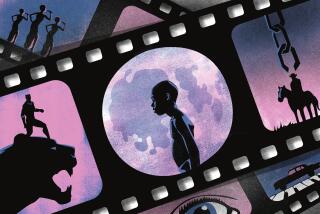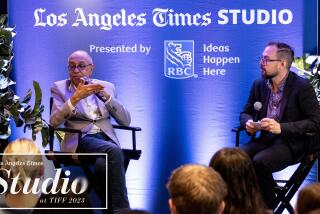ORIGINS OF THE BIRTH OF A NATION
- Share via
Gary B. Nash (UCLA) replies: In his book, “Reconstruction,” Eric Foner is concerned with the attempt to achieve social justice and racial equality in America after the Civil War--a struggle that is still going on. In reviewing the book, I pointed out how D. W. Griffith’s “The Birth of a Nation” popularized the rabidly anti-black views of Reconstruction created by historians in the early 20th Century. David H. Shepard cares little about this. More important to him is my omitting The from “The Birth of a Nation” and confusing the roles of Mae Marsh and Lillian Gish (who played sisters similarly assaulted by hulking black men).
What does he mean in stating that I “recite the same old cant about ‘The Birth of a Nation’ ”? If he is denying that Griffith’s film fed anti-black feeling, glorified the KKK, and helped to shape the thinking of Americans on the horrors of Reconstruction, then Shepard should re-read Richard Schickel’s biography of Griffith and virtually all other books on race relations in 20th-Century America. He might also want to ponder a recent National Public Radio Report on the KKK, which noted that part of the Klan’s initiation ceremony is the question to the initiate: “What is the greatest movie ever made?” The answer is not “Bambi” or “High Noon.”
My source for the claim that 200 million people had viewed “The Birth of a Nation” by 1946 is Terry Christensen, “Reel Politics: American Political Movies From Birth of a Nation (sic) to ‘Platoon’ ” (1987). Shepard is dead wrong on Thomas Dixon Jr.’s play, “The Clansman,” as the source of “Birth.” Schickel, whose book he cites, notes that it was the novel that preceded the play; it was the novel that excited Griffith to make his film; and it was the novel to which Griffith obtained the film rights. More important, Shepard’s quibbling about such matters is really only a way of diverting attention from the main points--Griffith’s Negro phobia, the power of film to shape attitudes and the problem of race in American society.
More to Read
Sign up for our Book Club newsletter
Get the latest news, events and more from the Los Angeles Times Book Club, and help us get L.A. reading and talking.
You may occasionally receive promotional content from the Los Angeles Times.










